Welcome to TechCrunch’s 2021 Holiday Gift Guide! Need help with gift ideas? We’ve got lots of them. We’re just starting to roll out this year’s gift guides, so check back from now until the end of December for more!
If you can’t read a good book without stopping every few pages to tweet about it, you might be what we call Extremely Online. You unabashedly distinguish between real life and digital life by using phrases like IRL versus URL, you disabled the Screen Time app on your iPhone because you don’t need that kind of judgement. Maybe you’re so online that it’s your job to write about social media, and even when you’re not working, you’re still thinking about the vice grip that Meta has on your life. Okay, that last one hit a bit too close to home.
But if you’re someone who would gladly read a dissertation on what the Steak-umms Twitter account means for digital advertising strategy, I’ve got bad news for you — that gold mine doesn’t exist yet. Still, some great writers — from inside Silicon Valley and from firmly outside of it, through fiction and non-fiction — can bring us offline to teach us about tech culture. Here are some relatively recent books that confront everything from the rise of TikTok to a fictional metaverse gone wrong.
This article contains links to affiliate partners where available. When you buy through these links, TechCrunch may earn an affiliate commission.
“Several People Are Typing” by Calvin Kasulke
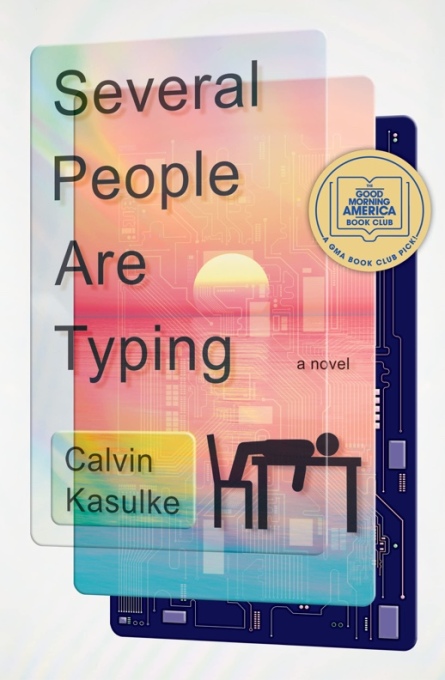
Image Credits: Doubleday
Here are the basic facts: book told exclusively through Slack messages, antagonistic Slackbot inhabits human’s body, human gets trapped in Slack, all his co-workers think it’s just a really elaborate bit, chaos ensues.
I’ve read this book twice this year, once as an e-book (yes, it really is just a bunch of Slack messages, no other exposition), and once as an audiobook, which features an ensemble cast performing as all the various Slack chatters. Both were lovely experiences. You might see “Slack book” and think it’s just a belabored treatise on how ~capitalism and the corporate world are eating us alive!~. This definitely isn’t a pro-capitalist book, but even as it tackles serious themes about our generation’s complete inability to understand how to create a work-life balance, it never feels overwrought, since it’s just so hilarious and absurd. Do you know how weird it looks to (1) read a book on the Philly bus and (2) laugh out loud at the book you are reading on the Philly bus? This book did that to me.
TechCrunch interviewed Calvin Kasulke (via text), where he shared some incontrovertible truths, like, “Capitalism is bad and bodies are prisons, but the only thing worse than having one is not having one.” But perhaps more importantly, Kasulke said: “Meatball subs are as good a reason to have a physical form as anything. Top 5 reasons to stay tethered to this mortal coil.”
Price: $18 from Amazon
“Uncanny Valley” by Anna Wiener

Image Credits: MCD
When this buzzworthy memoir about working in Silicon Valley came out last year, I deliberately chose not to read it, even though Goodreads kept telling me I would like it (semi-related: startup founders trying to “disrupt Goodreads” — I see you, and I appreciate you). I felt like I didn’t need a book to tell me something I already know: that startup culture can be toxic and misogynistic and that tech companies own too much of our data, because yes, we know that Browser A is better privacy-wise than Browser B, but what about all of our customized bookmarks and plugins? Even though none of these revelations were particularly shocking, Wiener’s perspective on the tech world as a non-technical startup employee was a reprieve from the corporate jargon that litters my inbox every day.
But the book isn’t so much about what it’s like to work in the Valley as it is about the experience of being a 20-something who just wants to work an innocuous, creative job that doesn’t hurt people, only to be seduced by the lucrative paychecks of the tech world, which may or may not hurt people. Wiener’s memoir begins as she slogs through a publishing gig in New York City, struggling to make ends meet while her bosses are taking lunch meetings at upscale bars and wearing designer clothes to the office. But you can’t blame her for abandoning her artsy college friends to move to the Bay and learn what MAUs are. It becomes clear to Wiener that it’s seemingly impossible to make it in fields like publishing or arts administration if your parents aren’t paying your rent. So what’s more evil: a corporate world that promises creative fulfillment and instead delivers inescapable student loan debt, or one that is wreaking havoc on the Bay Area and pushing longtime residents out of their homes but at least pays its workers well?
So, I guess the book didn’t really teach me anything new — there’s no ethical consumption under global capitalism, blah blah, we’re all complicit, et. al. But it’s at least nice to know you’re not the only one having an existential crisis about these things, I guess? Don’t worry, I’m fine.
Price: $12 from Amazon
“No One Is Talking About This” by Patricia Lockwood
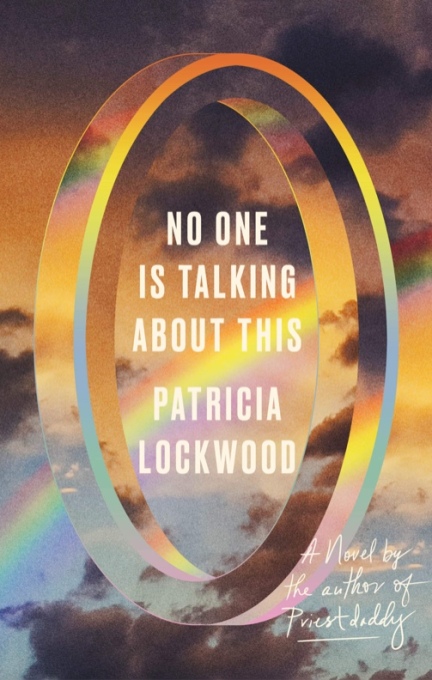
Image Credits: Riverhead Books
A nameless protagonist goes viral for posting, “can a dog be twins?” Of course, she becomes famous on the internet. It’s good content.
The first half of the book is told in post-ironic, somewhat nihilistic online-speak that feels mind-numbing. It’s the novelistic embodiment of doomscrolling. But when tragedy strikes close to home, the narrator is suddenly unconcerned with what’s going on in “the portal,” which is basically Twitter. Like “Several People Are Typing,” “No One Is Talking About This” is eerie in its mimicry of how Extremely Online people actually experience the internet. You’re sucked in, until suddenly, you’re not.
Price: $23 from Amazon
“A Beautifully Foolish Endeavor” by Hank Green
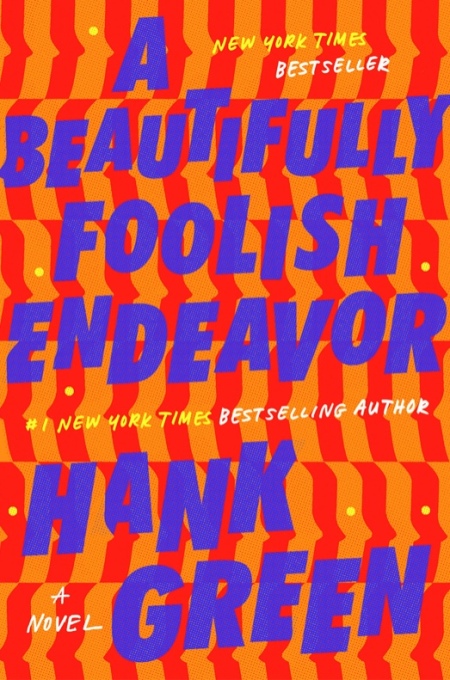
Image Credits: Dutton
Hank Green was one of the first YouTube stars, going on to found the YouTube conference VidCon and a bunch of other companies, like a charity sock subscription and an educational video company. He’s also weirdly popular on TikTok, so if anyone knows how the internet can change your life, it’s Hank, the enthusiastic nerd who probably taught you chemistry in high school.
Anyway, Green’s online footprint is relevant because his duology of “An Absolutely Remarkable Thing” and “A Beautifully Foolish Endeavor” is all about the internet (yes, the book I am recommending you is a sequel, which means you have to read two whole books). The first book chronicles (minor spoiler alert?) an overconfident 20-something’s rapid rise to global fame as she goes viral for unwittingly making first contact with aliens. April May, this struggling recent grad-turned-superstar, must reckon with what it’s like to go viral overnight — and now, in part thanks to TikTok, this experience is more relatable than ever.
But the second book, rather than the first, is highlighted on this list, because that was the story I couldn’t stop thinking about when Mark Zuckerberg unveiled Facebook/Meta’s plans for the Metaverse (it also might be relevant that I weirdly haven’t read “Ready Player One”). In the second book, April and her friends try to take down a wealthy tech founder whose virtual reality platform is a front for far more nefarious plans.
In one section of the book, Andy sinks deep into the VR “Altus Space,” where a leaderboard tracks which user can make the most money by selling goods in the space’s digital currency. The top 50 people on the leaderboard are promised an earth-shattering, “premium” experience. Andy climbs the ranks by adding value to the community, but he’s thwarted by celebrities who sell limited edition virtual trinkets in a last-ditch effort to win the contest. Without ever mentioning crypto, NFTs or DAOs, Green reminds us that the decentralized internet is not inherently utopian. As Andy’s girlfriend points out, since when has capitalism been a meritocracy?
Price: $16 from Amazon
“Bad Blood: Secrets and Lies in a Silicon Valley Startup” by John Carreyrou
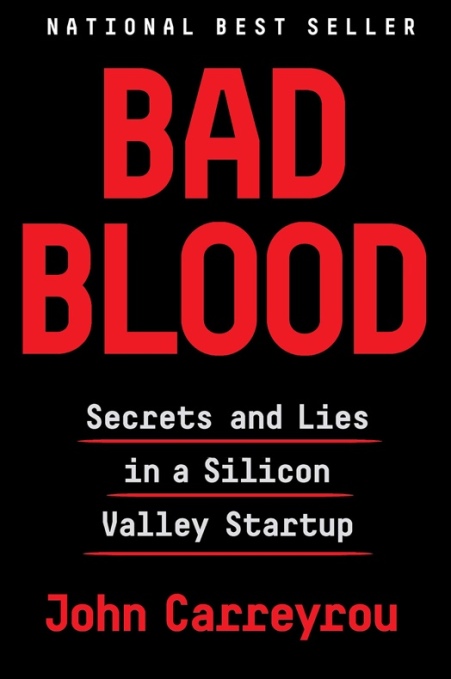
Image Credits: Knopf
Every book on this list was published in 2020 or later, but “Bad Blood,” released in 2018, is the exception. Over three years since the non-fiction book was published, Theranos founder and CEO Elizabeth Holmes is now being tried for criminal fraud, and things are getting spicy. So, if you’re Extremely Online, you’re probably going to hear about Elizabeth Holmes and her tiny vials of blood.
An investigative reporter at the Wall Street Journal, John Carreyrou published an exposé in 2015 revealing that Theranos, valued at $9 billion, didn’t actually produce accurate results through its blood testing technology. “Bad Blood” reveals how Carreyrou reported the story, including details from his research that didn’t make his original articles. Whether you’re eagerly watching Holmes’ trial unfold or you’ve never heard of Theranos, “Bad Blood” is a must-read for anyone interested in (or nervous about) the pitfalls of Silicon Valley culture. It’s almost too fascinating and horrific to be real.
Price: $12 from Amazon
“The Atmospherians” by Alex McElroy

Image Credits: Atria Books
Here’s another fiction selection, but this one comes screeching with trigger warnings: eating disorders, suicide, cults, you name it. But it’s also worth noting that Alex McElroy approaches these sensitive topics responsibly, even writing an essay in The Atlantic about how to broach eating disorder narratives without tacitly providing readers with instructions on how to mimic dangerous behaviors. In the case of this novel, McElroy addresses a character’s eating disorder by showing how his friends react to his suffering, rather than chronicling his exact symptoms.
“The Atmospherians” is so Extremely Online enough that its book cover is literally Instagram, but much of the book takes place in the woods. After a beauty influencer gets “cancelled” on social media, she starts a cult with her childhood best friend, where they attempt to reform “bad men,” teaching them to unlearn the behaviors of toxic masculinity. But maybe the most online moment is when the narrator is offered a lucrative contract to be the spokesperson for a product that wants to change social media by asking people, “are you sure you want to post that?” before they say something that might offend people. It’s not too far off from real-world warnings that exist on Twitter and Instagram.
Price: $18 from Amazon
“Press Reset: Ruin and Recovery in the Video Game Industry ” by Jason Schreier
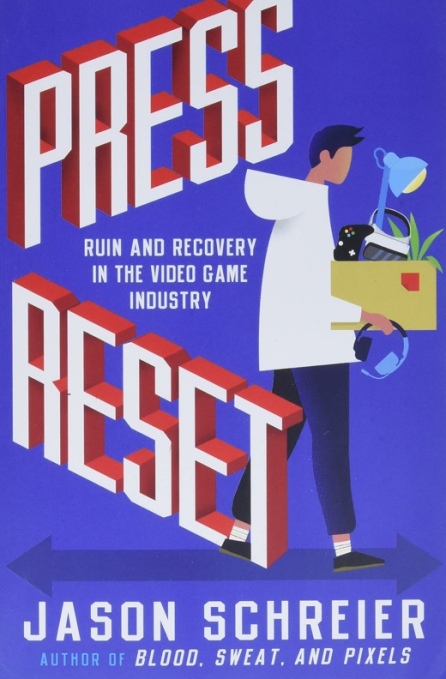
Image Credits: Grand Central Publishing
If you’re Extremely Online in that you play a lot of video games, you’ve probably heard about how the gaming giant Activision Blizzard, which produces games like Candy Crush, Call of Duty and World of Warcraft, is facing SEC investigations and sexual harassment scandals. But Jason Schreier’s reporting reveals that this is just the tip of the iceberg when it comes to problems in the video game industry.
The start of the book can feel a bit depressing as Schreier recounts numerous stories of game studios closing without notice, developers struggling between jobs and staff being poorly compensated for 70-hour work weeks. But the book’s subtitle delivers on its promise to chronicle not just ruin, but also, recovery! Ultimately, Schreier creates a hopeful narrative. You’ll never look at Bioshock Infinite the same way after learning how bad things got behind the scenes, but Schreier shows how independent studios, unionized teams and outsourcing studios like Disbelief can help solve the toxicity of the video game industry.
Price: $16 from Amazon
“Out of Office: The Big Problem and Bigger Promise of Working from Home” by Charlie Warzel and Anne Helen Petersen
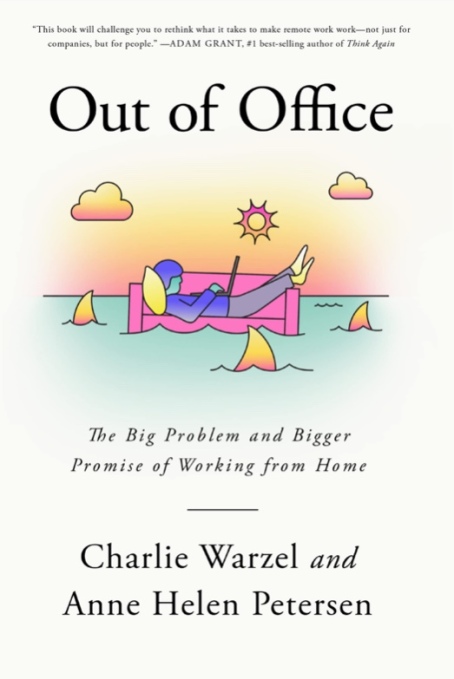
Image Credits: Knopf
I knew that the definitive pandemic-era work from home book was coming, but I’m glad it was written by Charlie Warzel, who writes the Extremely Online Galaxy Brain newsletter, and Anne Helen Petersen, author of that viral “millennial burnout” article-turned-book. Thankfully, Warzel and Petersen’s book is less about ~these unprecedented times~ and more about how the culture shift of the pandemic can maybe be an opportunity to solve issues that have existed in the corporate world since before we wore masks every day.
“Capitalism is inherently exploitative, but it is also — at least for the immediate future — our guiding economic system,” the pair writes. “If we’re going to live under it, how can we bend it to make that experience involve less suffering?”
“Out of Office” focuses more on “knowledge workers” than, let’s say, an Amazon fulfillment center employee. But, bonus recommendation if you’re itching to get radicalized about awful capitalism: “On the Clock: What Low-Wage Work Did to Me and How It Drives America Insane” by Emily Guendelsberger. It’s relevant reading given current events.
Price: $23 from Amazon
“TikTok Boom: China’s Dynamite App and the Superpower Race for Social Media” by Chris Stokel-Walker
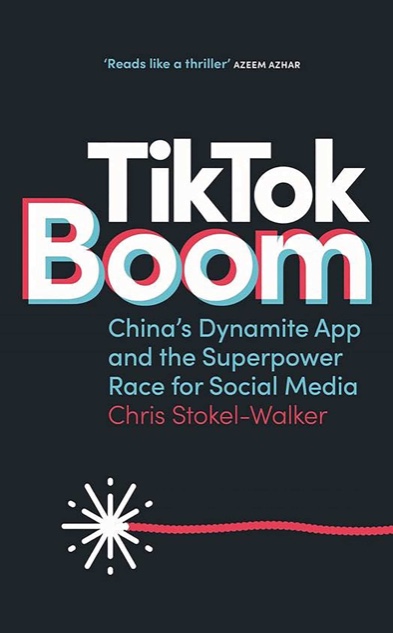
Image Credits: Canbury Press
This comprehensive history of TikTok’s rise to social dominance begins as the author, a tech journalist who also wrote a book about YouTube, attends a panel at VidCon. It’s February 2019. The British writer remembers of the time, “I know that TikTok is popular, but only in the way that people outside of the U.S. know that the NFL pays astronomical salaries without ever getting a grip on it, or comprehending why anyone would care about it.” How quickly things changed for us all. Now, with over 1 billion monthly active users, TikTok feels like something that’s always existed, yet its prevalence is still relatively new. Trillion-dollar companies like Meta look at TikTok like the popular kid who just transferred schools and threatens to upend its seemingly impenetrable social dominance. How did this happen, and with a Chinese app nonetheless, in a time when Western xenophobia is horrifyingly rampant? Stokel-Walker picks apart just how TikTok rose to prominence, charting its impact on the creator economy, Silicon Valley, geopolitics and more.
Price: $20 from Amazon


